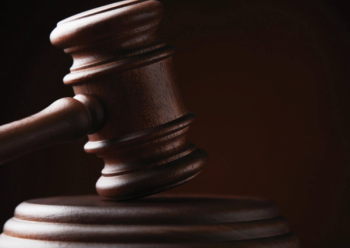
- Psychiatric Times Vol 25 No 9
- Volume 25
- Issue 9
The Defendant Psychiatrist’s Malpractice Deposition
After a formal complaint alleging malpractice is made, the discovery phase of the litigation process begins. Discovery is the process in which the parties to a lawsuit go about gathering information before trial. The rationale behind discovery is to reduce surprises at trial and to encourage settlement before trial. Methods of discovery include written interrogatories, requests for documents, and depositions of various witnesses.
How important is the defendant psychiatrist's deposition in a malpractice case? It could mean the difference between the suit being dismissed-or going to trial. Do not let the relatively informal nature of the deposition mislead: approximately 90% of malpractice cases settle before trial, and the deposition of the defendant doctor is often the turning point that determines the outcome of the case.1-3 If a case settles in favor of the plaintiff, the effectiveness of the defendant psychiatrist at deposition may determine whether the case settles for $300,000-or $1,000,000.
Deposition Basics
After a formal complaint alleging malpractice is made, the discovery phase of the litigation process begins. Discovery is the process in which the parties to a lawsuit go about gathering information before trial.4 The rationale behind discovery is to reduce surprises at trial and to encourage settlement before trial. Methods of discovery include written interrogatories, requests for documents, and depositions of various witnesses. A deposition is “a witness’s out-of-court testimony that is reduced to writing (usually by a court reporter) for later use in court or for discovery purposes.”5 The witness being deposed is referred to as the deponent, and the testimony is given under oath.6
The 2 general types of depositions are:
- Depositions to preserve testimony.
- Discovery depositions.
Depositions may be given to preserve testimony in the event that a witness will not be available at the trial. This type of deposition adheres to the usual trial procedures of direct and cross-examination and is often videotaped for viewing at the trial. A discovery deposition is designed to gather information before trial. Almost all questions are asked by opposing counsel. This type of deposition is most likely to be encountered by the defendant psychiatrist sued for malpractice. While the ground rules for the deposition vary among jurisdictions, in general, the Rules of Civil Procedure give deposing counsel substantial latitude regarding the questions that can be asked.7 The parties at the deposition typically consist of the deponent and defending counsel, opposing counsel, and the transcriptionist.
The plaintiff’s attorney has a wide-ranging agenda during the deposition. The overarching goal is to gather as much information as possible about the other side’s case.8 No matter how accurate the medical records may be, interpretation and follow-up questioning of key players will still be required to get the full story. Another goal of opposing counsel at deposition is to “lock-down” a witness’s testimony for use at trial.6 Once the testimony is captured at deposition, it can be used to impeach the witness in the event that the witness gives inconsistent testimony at trial.
In addition to gathering information, opposing counsel seeks to assess the strengths and weaknesses of the defendant psychiatrist as a witness.9 The impression made by the defendant psychiatrist may influence the plaintiff’s attorney’s decision about how far to pursue the case. Experienced defense attorneys may begin to consider settling a case “if their client shows such arrogance [in the deposition] that they’re afraid to let him appear in front of a jury.”10Preparation is Paramount
The defendant psychiatrist is likely to experience significant emotional stress that waxes and wanes during the lengthy litigation process.11,12 Some of this stress may be relieved by being well prepared. It will be important to carefully review the entire database, which usually consists of the medical records and other fact witness discovery depositions. This review should be conducted at least twice, with one review occurring just before the deposition.3 This will keep the details of the case fresh in mind and will be helpful in the event that opposing counsel mischaracterizes information during the deposition.
In preparing for a deposition, it is worthwhile to insist on at least 2 pre-deposition conferences with defense counsel. At the first meeting, the psychiatrist should volunteer all pertinent information about the case, as well as any noteworthy medical inconsistencies.2 Other questions to be addressed include what documents to bring to the deposition, who will be present, and the expected duration. Defense counsel will not have control over how long a deposition lasts but may be able to give a rough estimate. The psychiatrist should plan accordingly and allow for sufficient scheduling flexibility. The typical duration of a deposition is approximately half a day, but depositions that last more than a day are not unheard of.
At a later pre-deposition conference, defense counsel may help by conducting a “mock” deposition that focuses on difficult or anticipated questions. This is a good opportunity to master some of the anxiety surrounding the deposition and to improve one’s effectiveness as a witness. The psychiatrist may wish to go over his or her curriculum vitae with defense counsel and check it for mistakes or other areas that may attract problematic deposition questions. The defendant psychiatrist should be fully aware that attorneys are taught to research doctors’ online profiles,13 and it is important to alert defense counsel to any Web sites that are professionally relevant.
General Guidelines
Answers to deposition questions should be kept brief and clear. The deposition is a fact-finding mission for opposing counsel who may ask broad questions, hoping to encourage rambling answers that might reveal new facts. Brief answers provide the least information to opposing counsel and are best under most circumstances. There may be exceptions to this general principle, but these will almost invariably be the result of specific instruction from defense counsel. The defendant psychiatrist is under no obligation to make opposing counsel’s job easier, and volunteering additional information may open up superfluous, yet problematic areas of questioning.
Regardless of opposing counsel’s approach and questioning style, a calm equanimity should be maintained. It is critical to maintain one’s composure and resist the urge to counterattack in a hostile manner. In all circumstances, the psychiatrist should strive for a demeanor of dignified confidence and humility. Opposing counsel gains a distinct advantage when the defendant psychiatrist loses composure or becomes arrogant. Indeed, experienced plaintiff’s attorneys may be testing for precisely such a reaction with the hope that the psychiatrist will “demonstrate his arrogance” during the deposition, or later on the witness stand.10
Another key principle is to listen carefully to each question asked during the deposition. It is helpful to pause for a moment after the question is asked to give it careful consideration. This also allows time for other attorneys to object.14 Listening carefully to defense counsel’s objection may reveal a clue about the best response to the question. The defendant psychiatrist should refrain from answering any questions when advised to do so by defense counsel.
While there is no rule against opposing counsel asking the witness to speculate, the defendant psychiatrist should generally avoid doing so. The deponent is required to tell the truth -not speculate or volunteer guesses. The best way to cause a jury to disbelieve your testimony is to make inaccurate or unfounded statements, which opposing counsel will surely point out at trial. If compelled to make a “guesstimate,” qualify answers by saying “approximately” or “to the best of my recollection.” Avoid the use of adjectives and superlatives, such as “never” and “always.” These qualifiers may also be used to distort or mischaracterize testimony at trial.
Questions that are not understood should not be answered. There should be no hesitation to ask for clarification of confusing or convoluted questions. If opposing counsel begins asking questions based on a particular document, request to review the document to make sure that opposing counsel has not misunderstood the document’s contents or quoted it out of context.
The defendant psychiatrist should not be tempted to “plumb the depths” of his memory in the midst of the deposition in search of a forgotten piece of information. For example, if asked whether a patient displayed a specific symptom during an appointment 4 years ago, the true answer is likely to be “not that I recall,” rather than “no.” Similar answers may be qualified with statements such as “to the best of my recollection,” or “not that I recall at this time.”
Throughout the deposition, both attorneys may periodically tell the court reporter that they wish to have a discussion that is “off the record.” Be aware, however, that nothing is off the record for the defendant psychiatrist. Even if the psychiatrist makes a statement when the court reporter has been told to stop, opposing counsel can then proceed to summarize on the record all of the psychiatrist’s statements.
If the deposition is to be videotaped, the defendant psychiatrist should approach the deposition as if it were an actual trial, because the video may actually be played for the jury should the case go to trial. Thus, it will be important to dress appropriately, speak clearly, and look directly into the camera. There should be no reluctance or embarrassment over making sure that one is videotaped in the best possible context including the use of lighting, camera angles, and background.
Some Commonly Used Tactics by Opposing Counsel
Opposing counsel may approach the deposition with a particular demeanor in an attempt to get the defendant psychiatrist to let down his guard and speak more freely. Some attorneys are taught to look for an opportunity before the deposition begins to show that they are “friendly” and not to be feared. Ordinary politeness and courtesy aside, it is important to keep in mind that discussions with opposing counsel without defense counsel present are not appropriate.
Opposing counsel may adopt the persona of the “eager student” during the deposition. This approach is designed to massage one’s narcissism, paving the way for long narratives and volunteered information. Similarly, in the role of “counselor clueless,” opposing counsel may appear so ignorant of certain facts that the defendant psychiatrist can scarcely resist jumping in to educate him. Never underestimate the medical sophistication of opposing counsel, and keep in mind that it is not your role to teach him psychiatry. If the case involves explaining key psychiatric concepts to a jury, the majority of this task will likely belong to an expert witness retained by defense counsel.
After the defendant psychiatrist gives a brief, honest answer, opposing counsel may simply sit silently as if expecting a more substantive answer. Resist the natural reflex to this “silent treatment,” which is to fill the uncomfortable silence with added responses. Be alert to a pattern of questioning designed to elicit only “yes” answers. This technique, sometimes used by salespersons, makes it more difficult to say “no” in response to an ambiguous question. Opposing counsel may misquote earlier testimony or state facts incorrectly-these errors should be pointed out. They may be an innocent mistake, or a deliberate attempt to distort testimony.
The preparation and guidelines previously mentioned (in addition to defense counsel’s advice) should be sufficient for readying oneself for a deposition. For those who feel like they might benefit from reviewing other commonly used tricky or difficult questions, other resources are available.15-16
During a full day deposition, the greatest likelihood of making mistakes begins around 4 pm (P. Resnick, personal communication, March 31, 2008). Indeed, some attorneys may reserve especially important questions for this time, hoping that the witness will give a less guarded response. The defendant psychiatrist should make sure to be well rested before the deposition and to ask for breaks during the deposition if fatigue begins to affect concentration.
Conclusions
The deposition is a standard part of the discovery process that allows both parties to gather information before trial. The defendant psychiatrist’s deposition is of utmost importance. The deposition is not merely a “dress rehearsal” or informal trial; it must be taken very seriously, because it will play a critical role in determining whether a case will go to trial, settle, or be dismissed. Good preparation involves mastering the facts of the case as well as having a clear understanding of opposing counsel’s goals and strategies.
Articles in this issue
over 17 years ago
The Age of Conflicts-of Interestover 17 years ago
Reconstructing One’s Pastover 17 years ago
A Neuroscientific-Medical Perspectiveover 17 years ago
From Prevention to Preemption: A Paradigm Shift in Psychiatryover 17 years ago
Collaborating With Our Medical Colleaguesover 17 years ago
Intimate Partner Violence: Practical Issues for Psychiatristsover 17 years ago
Oxytocin and the Bottom Lineover 17 years ago
Conflicts Grow Over Conflicts-of-Interest Policies and Practicesover 17 years ago
Unexplained Physical SymptomsNewsletter
Receive trusted psychiatric news, expert analysis, and clinical insights — subscribe today to support your practice and your patients.







